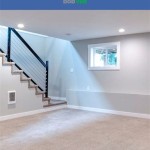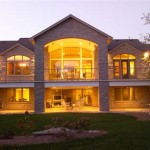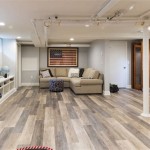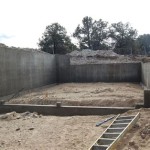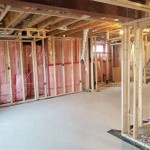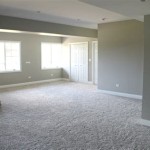Basement Wall Alternative To Drywall
Drywall is a popular choice for finishing basement walls, but it is not the only option. There are a number of other materials that can be used, each with its own advantages and disadvantages. Here are a few of the most popular alternatives to drywall for basement walls:
Paneling
Paneling is a type of wall covering that is made from thin sheets of wood, plastic, or metal. It is available in a wide variety of styles and finishes, so it can be used to create any look you want. Paneling is relatively easy to install, and it can be painted or stained to match your décor. However, paneling can be damaged by moisture and humidity, so it is not a good choice for basements that are prone to flooding or water damage.
Beadboard
Beadboard is a type of wall covering that is made from narrow strips of wood that are joined together with a bead. It is often used in bathrooms and kitchens, but it can also be used in basements. Beadboard is moisture-resistant, so it is a good choice for basements that are prone to flooding or water damage. However, beadboard can be difficult to install, and it can be expensive.
Stone veneer
Stone veneer is a type of wall covering that is made from thin slices of natural stone. It is available in a variety of colors and textures, so it can be used to create any look you want. Stone veneer is durable and moisture-resistant, so it is a good choice for basements that are prone to flooding or water damage. However, stone veneer can be expensive, and it can be difficult to install.
Concrete block
Concrete block is a type of wall covering that is made from concrete blocks. It is a durable and fire-resistant material, so it is a good choice for basements that are prone to flooding or fires. However, concrete block can be cold and uninviting, so it is not a good choice for basements that are used for living space.
Insulating concrete forms (ICFs)
ICFs are a type of wall system that is made from foam blocks that are filled with concrete. ICFs are highly energy-efficient, so they can help to reduce your energy bills. They are also moisture-resistant, so they are a good choice for basements that are prone to flooding or water damage. However, ICFs can be expensive, and they can be difficult to install.
When choosing a basement wall alternative to drywall, there are a few things to keep in mind:
- The cost of the material
- The ease of installation
- The durability of the material
- The moisture resistance of the material
- The appearance of the material
By considering these factors, you can choose the best basement wall alternative to drywall for your needs.

Finishing Basement Walls Without Drywall R S Basements

11 Potential Drywall Alternatives For Your Walls

Finishing Basement Walls Without Drywall Options And Alternatives

Top Alternatives To Drywall In Basement Renovation

11 Drywall Alternatives For Basements

The Best Drywall Alternatives For Your Walls In 2024 Great Lakes Tiny Home

Best Alternatives To Drywall For Garage Walls Trusscore

Best Alternatives To Drywall For Garage Walls Trusscore

24 Drywall Alternatives For Your Walls Basement Ceiling And More

19 Drywall Alternatives For Unfinished Walls Advice From Bob Vila

